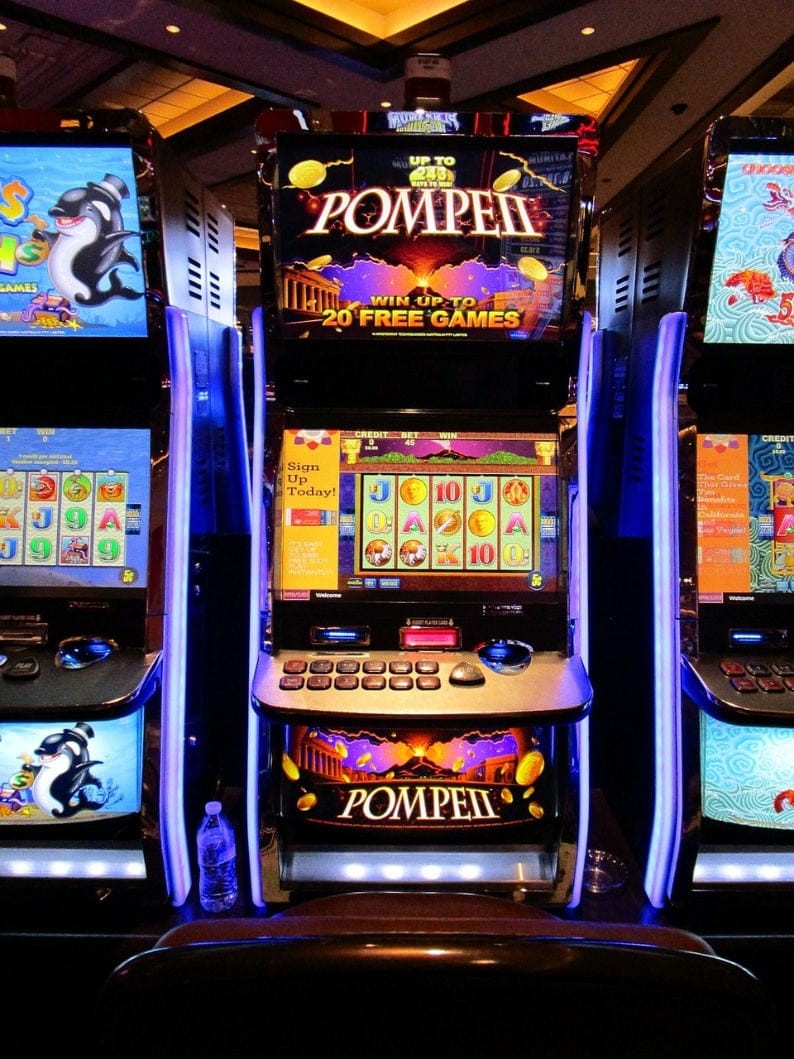
Casino Operations from Behind-the-Scenes Unveiled
Walk past the spinning wheels and flashing lights of any casino floor, and you're witnessing pure theater. What you don't see is the intricate machinery humming behind every dice roll—a complex operational ecosystem that generated $71.9 billion in U.S. commercial gaming revenue last year alone, marking a 7.5% increase that reflects far more than lucky streaks.
While you're focused on whether that slot machine will hit, operators are managing financial flows where Nevada alone processes $146 billion in total wagering to generate $15.6 billion in casino revenue. This isn't about chance. It's about mathematical precision, technological sophistication, workforce management, and regulatory compliance working in perfect harmony. TheOnlineCasino.com is a great example of how these essential components come together.
Think of it this way: every casino operates as four distinct but interconnected systems. There's the financial engine that turns mathematical certainties into profit. The technological nervous system that monitors every transaction. The human element that delivers experiences worth returning for. And the regulatory framework that governs every decision.
Let's pull back that velvet curtain.
Where Every Penny Counts
Here's something most visitors never consider—your casino experience begins at 2 AM, long before you've had your morning coffee. That's when pit bosses and dealers conduct meticulous inventories of every chip on gaming tables. Security teams empty cash boxes. Tip boxes get counted and distributed. Meanwhile, sophisticated software tabulates slot machine revenues in real-time, creating the financial foundation for everything that follows.
The numbers tell a story that's both fascinating and sobering. Traditional casino gaming—slots and table games—produced $49.78 billion last year. Of that massive figure, $36.06 billion came specifically from slot machines. That's 72% of traditional gaming revenue flowing from automated systems rather than human dealers. Think about what this means for operational focus: casinos have learned that reliable, consistent revenue streams matter more than the dramatic flair of high-stakes table games.
Nevada's casinos demonstrate this principle perfectly. Their slot machines maintain a 7.2% house win percentage across that $146 billion in total wagering. Seven cents of every dollar wagered, guaranteed over time. Not through manipulation or trickery, but through mathematical certainty built into every game.
This global pattern holds remarkably consistent. South Africa's casino industry generated R17.4 billion in gross gambling revenue from just 21,978 slot machines and 911 table games. When their broader gambling market saw turnover increase 40.2% to R1.1 trillion, it wasn't luck driving those numbers—it was operational efficiency meeting regulatory frameworks designed for sustainable growth.
But here's where things get interesting from an operational standpoint. Outstanding chip inventory represents a unique liability that most businesses never face. Every chip on your property is essentially an IOU that customers can redeem for cash at any moment. Casinos must calculate this liability daily, accounting for chips in circulation minus those under casino control, adjusted for chips that management estimates will never be redeemed. It's a financial balancing act that requires precision most industries can't fathom.
Silicon Sentries
The technology driving modern casino operations extends far beyond what you might expect. We're talking about a $9.98 billion casino management systems market in 2025, projected to reach $18.28 billion by 2029. That 14.5% annual growth rate reflects an industry investing heavily in operational intelligence.
AI-powered surveillance systems now function as proactive security measures rather than reactive monitoring tools. These systems analyze thousands of behavioral patterns simultaneously, flagging everything from unusual hand movements to individuals loitering around cash handling areas. The technology doesn't just record—it thinks, learns, and predicts.
Facial recognition has evolved beyond basic security applications. Today's systems remember your gaming preferences, your favorite drinks, even your usual food orders. The same technology that enhances your VIP experience also prevents self-excluded individuals from accessing gaming areas—a critical compliance function after high-profile fines reached $2 million in Australia for properties that failed to identify banned customers.
RFID technology embedded in casino chips provides real-time tracking of all table game activity. Every bet, every payout, every chip movement gets recorded and analyzed. This isn't about Big Brother surveillance—it's about identifying statistical anomalies and suspicious money flow patterns that could indicate money laundering activities. When global anti-money laundering fines reached $264 million during 2022, operators realized that sophisticated tracking systems aren't optional extras—they're operational necessities.
Cloud-based solutions and mobile optimization drive much of this technological expansion. Modern casino management systems integrate player tracking, loyalty programs, regulatory reporting, and financial management into unified platforms that provide real-time operational monitoring across all departments. From gaming floors to hotel operations, restaurant management to security protocols, everything connects through centralized systems that process enormous volumes of data around the clock.
What's particularly striking is how this technology enables compliance rather than restricting it. When regulators require detailed reporting on player behavior, transaction patterns, or operational metrics, sophisticated management systems can generate comprehensive reports within hours rather than weeks. Real money table games, slots and every other game in between benefit from this safe, secure structure.
Managing the Heart of the Operation
Despite all this technological sophistication, casino operations ultimately depend on human performance. Labor costs represent the single biggest line item on most casino profit-and-loss statements, making workforce management a critical operational priority that directly impacts both guest experience and profitability.
The industry faces shrinking talent pools and evolving employee expectations that would challenge any service business. Properties with comprehensive benefits packages experience 45% lower turnover rates compared to those offering minimal benefits. This statistic drives a fundamental shift from reactive hiring to proactive retention strategies, including professional development programs that show clear career advancement paths.
Here's what the data reveals about investment in human capital: 68% of casino employees who received training reported higher engagement and loyalty. That's not just feel-good HR metrics—that's operational stability translated into consistent service delivery. These programs span multiple departments, reflecting the diverse skill sets required for modern casino operations: gaming expertise, hospitality excellence, marketing acumen, security awareness, and food service proficiency.
The global nature of casino operations adds another layer of complexity. Consider that 26% of the global population engages in gambling activities, but participation rates vary dramatically—from 44% in the United Kingdom to 87% in Japan. These cultural differences require operators to adapt their workforce training, customer service approaches, and operational models to match local expectations and regulatory requirements.
Managing this human element requires understanding that casino employees work in a unique environment. They're serving customers who might be experiencing significant financial wins or losses. They're operating under intense surveillance. They're following strict regulatory protocols while maintaining friendly, engaging service. The psychological demands of casino work create retention challenges that go beyond traditional hospitality concerns.
Smart operators have learned that investing in comprehensive training programs pays measurable dividends. When employees understand both the technical aspects of their roles and the broader operational context, they make better decisions, provide superior service, and stay with companies longer.
Navigating Rules that Never Sleep
Casino operations exist within regulatory frameworks that would make other industries dizzy. The complexity starts with problem gambling monitoring—a responsibility that requires sophisticated tracking systems and immediate intervention protocols. The National Council on Problem Gambling estimates 2 million U.S. adults meet criteria for severe gambling problems annually, with an additional 4-6 million experiencing mild to moderate issues.
This means every casino must balance revenue generation with responsible gambling obligations. Tracking systems monitor player behavior patterns, flagging concerning activities that might indicate problem gambling. Staff training programs teach employees to recognize warning signs and implement intervention procedures. It's an operational challenge that requires both technological solutions and human judgment.
Financial reporting requirements add another layer of complexity. When Caesars Entertainment filed financial statements just 25 days after year-end, they demonstrated the robust accounting systems required to track and report complex gaming operations in real-time. These aren't quarterly estimates—they're precise calculations of revenue, expenses, liabilities, and cash flows across multiple properties and jurisdictions.
Anti-money laundering compliance drives daily operational procedures throughout every casino. Those $264 million in global fines represent more than regulatory penalties—they highlight the serious consequences of compliance failures. Every large cash transaction, every unusual betting pattern, every suspicious customer behavior must be documented, analyzed, and reported to appropriate authorities.
Different jurisdictions create varying operational requirements that affect everything from game rules to reporting procedures. What works in Nevada might not meet requirements in New Jersey. European regulations differ from Asian markets. Global operators must maintain operational flexibility while ensuring consistent compliance across all locations.
The Invisible Orchestra
The $71.9 billion casino industry represents something far more sophisticated than entertainment revenue. It's a demonstration of operational excellence under intense scrutiny, where financial precision meets technological innovation, human performance intersects with regulatory compliance, and mathematical certainties create sustainable business models.
What strikes me most about casino operations is this paradox: the most successful properties are those you never think about operationally. The invisible machinery works so seamlessly that the magic remains intact. When that $18.28 billion projected casino management systems market by 2029 materializes, it won't announce itself with fanfare. It'll simply make everything work better.
Perhaps that's the ultimate measure of operational success—when complexity becomes invisible, when systems integrate so thoroughly that guests experience only entertainment, not the intricate orchestration making it possible.
Related Article Archives
Related Articles
The Shift from RNG to Live Interactive Gaming Environments
Posted Feb 13th, 2026
How to Choose a Reputable Online Casino
Posted Feb 14th, 2026
Winna Casino Review What Players Should Know Before Signing Up
Posted Feb 17th, 2026
Sweepstakes Casinos: Why Players Are Choosing Social Gaming in 2026
Posted Feb 18th, 2026
Thrill Seekers vs. Strategists: Which Casino Games Match Your Personality
Posted Feb 18th, 2026
The Top 5 Slot Games Players Keep Coming Back to in 2026
Posted Feb 20th, 2026
Disclosure: This article contains sponsored content.






